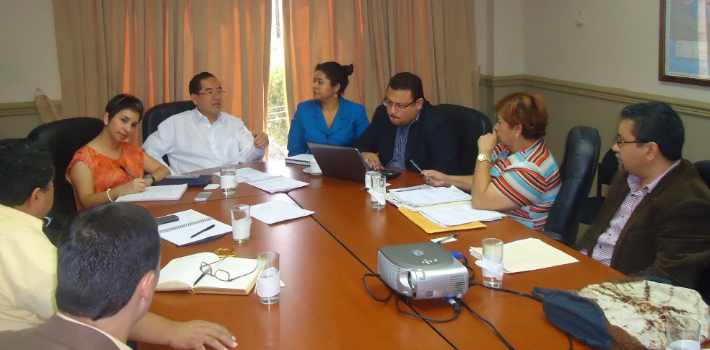
Español The Secretariat of Governance and Justice announced on January 11 that 4,104 nonprofit organizations will lose their legal status in Honduras. The NGOs failed to present financial reports the government requires to legalize their operations in the country. Among those affected are religious groups, medical charities, and human-rights organizations.
In accordance with the 2011 Special Act for Promotion of Non-Governmental Development Organizations, which stipulated the need to monitor all civil-society organizations, NGOs are required to submit an annual report detailing their administrative activities, funding, assets, and liabilities.
The Registration and Monitoring Unit for Civil Associations (URSAC) gave two consecutive extensions to the original deadline by which NGOs had to present their reports, with the latest expiring in October 2014. A bureaucratic registration process, and fears about being shut down regardless, may have played a part in the failure of the vast majority of affected civil-society organizations to comply with regulations.
“The logical process means that their license to operate is cancelled … some of them have failed to submit any information in about two or three years, so this must be understood by the government of Honduras to mean absolute inactivity,” Juan Pablo Hernández, head of URSAC, told local newspaper El Heraldo.
Honduran Civil Society under Attack
In February 2014, Jorge Montes, then director of URSAC, ordered the cancellation of the legal status and liquidation of the assets of 5,429 organizations, citing a lack of information about their operations.
The International Federation for Human Rights (FIDH) and the World Organization Against Torture (OMCT) called on the government to cancel this provision, which included “religious groups, educational and medical associations, and human-rights organizations,” labeling it an attack on freedom of association.
Rigoberto Chang Castillo, minister of Human Rights and Justice, subsequently apologized to NGOs, admitting that the ruling was affecting several organizations who did meet all legal requirements and had submitted the corresponding documentation to government authorities.

URSAC granted an extension of 60 days in March, applicable to all civil-society organizations, nonprofit foundations, associations, community partnerships, and churches. However, no more than 500 organizations submitted the requested documentation.
A further extension was granted by URSAC, but fewer than 1,000 additional organizations fell in line with the regulations. By October 2014, a total of 1,325 NGOs had normalized their status. Of these, 950 are local development agencies, including community boards and civil associations.
According to Hernández, URSAC is due to publish the list of the 4,104 “illegal institutions” that will lose their operating license. In addition, he said that the assets of the NGOs who lose their legal status will be liquidated and revert to the state.
A Convenient Application of the Law
Jorge Colindres, legal analyst with Honduras-based think tank Fundación Eléutera and coordinator for the local chapter of Students for Liberty, told the PanAm Post that despite the technical legality of the process, the government will likely derive political advantage from the closure of so many civil-society organizations.
“I think the law has been applied equally to most NGOs,” he said, but argued that the policy of closure “is a strategic move, because much of the opposition’s strength comes from the organizations, such as workers’ movements.”
“While everything was done according to the law, I personally think that it was done to weaken the opposition. The government is acting under the existing legal framework, but in my view this is too strict,” Colindres explained.
He added that the failure of many organizations to register in time may have been the result of a bureaucratic process which often results in NGOs arbitrarily being denied license to operate.
“It’s centralized in the capital, and everything depends on the subjective judgement of the authorities for approval,” he said.
Edited by Laurie Blair.
 Versión Español
Versión Español












